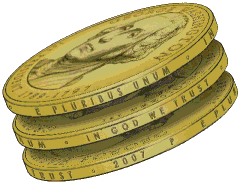I’m pondering an idea which is certainly not original, though it is an idea powerful enough to make a mockery of any moral system that looks to the consequences of actions to characterize the moral quality of those actions.
Here’s the thought: Every so often something really bad happens to me. I’m in an auto accident. I lose my job. My marriage fails. My children ignore me. Something expensive breaks. Someone I care about dies. My attempts to impress someone important go completely unnoticed. I spend endless hours on a project and it does not turn out the way I had hoped.
Each of these things are the types of things we would easily categorized as “bad.” They are so obviously bad that we can predict that our friends, upon hearing of these things, will console us. But are “bad” things really bad?
After all, while I’m healing from that auto accident, an incredibly important thought occurs to me and I change my life for the “better.” Even though I’ve lost a job I cherished, I then find another job which I like even better. After my marriage fails, I make some changes in my life and I encounter a new love. When my children ignore me, I learned to pay more attention to them and then I benefit from an improved parent-child relationship. That thing that broke is something I didn’t need in my life anyway. The death of my close friend inspires me to be a better person. …


